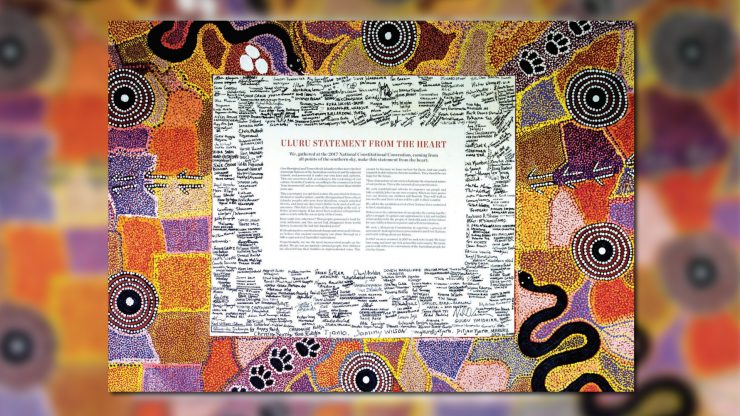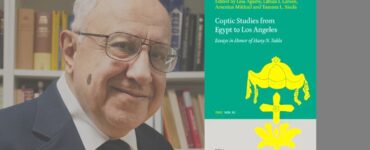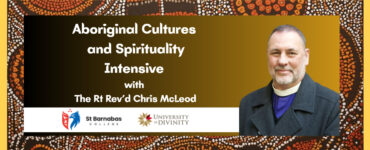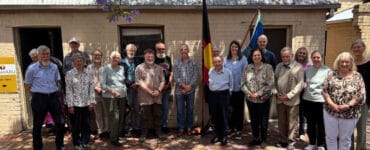The Statement from the Heart’s affirmation of the spiritual sovereignty of the Aboriginal and Torres Strait Islander peoples and their ancestral ties with the land is welcomed with gratitude by the Religion and Social Policy Network of the University of Divinity. RASP is humbled by the audacious generosity extended to the non-Indigenous Australian people through the forgiveness and renewed co-existence offered to us through the Statement. In the face of disproportionate levels of incarceration, the devastating alienation of children from their families, and the theft of country never ceded, we do not merit this forgiveness.
In accepting the painful truth of the structural torment of First Peoples’ powerlessness, we acknowledge our complicity through the embedded structural nature of Australian Christianity’s power and privilege. The history of Christianity’s embeddedness in power began well before the British crown invaded Aboriginal and Torres Strait Islander country. In 1493 Pope Alexander VI promulgated ‘the Doctrine of Discovery’, a papal decree with the force of international law that gave European kings the right to seize land in the New World for their own kingdoms if the land was not occupied by Christians or was not owned according to European definitions of land ownership. Fuelled by these corrupted Christian beliefs 300 years later, Captain James Cook claimed the east coast of Australia for King George III and the sovereignty of the British crown. Following Cook’s 1770 ‘discovery’, the doctrine of discovery provided a Christian justification for the subsequent invasion and its blind captivity to secular political power and its legal fiction of terra nullius.
This is a historic theological corruption that needs to be put right. In March 2023, a Vatican statement said the 15th-century decrees “did not adequately reflect the equal dignity and rights of Indigenous peoples” and were used by colonial powers “to justify immoral acts against Indigenous peoples that were carried out, at times, without opposition from ecclesial authorities”. Today RASP welcomes the opportunity for a new beginning in our engagement with First Nations people. The Vatican’s repudiation of the imperialist theology of the doctrine of discovery and its acknowledgement of the failure of church authorities to stand up for justice emboldens RASP to say:
- The claim of the British crown to sovereignty over Australia was based on corrupted belief and the unjust exercise of power that remains to the present under the Australian constitution.
- The failure of the British crown to establish a treaty with the Aboriginal and Torres Strait Islanders was based on corrupted belief and the unjust exercise of power, a situation that continues to the present in every jurisdiction in this land.
- The actions and policies of Australian political parties that seek to prevent a transformation of the Australian constitution from its historic basis makes them complicit in corrupted belief and the unjust exercise of power.
From our Christian perspective we hear what is offered to the Australian people through the Statement’s generous gift of forgiveness of our complicity in colonialism’s corrupt belief and injustice. The Statement’s central commitment to justice for all through future co-existence sounds an echo or a resonance with the gifts for life given under the sovereignty of the Creator God revealed in our scriptures. We hear God’s ‘yes’ to the Statement from the Heart. There is also God’s ‘no’ to those who would resist the love and justice offered through the sovereign spirituality of First Nations people.
The Statement from the Heart calls RASP and all Australians to contribute to righting an historic wrong. This begins with our support for a ‘yes’ vote at the coming referendum, and our unequivocal support for the negotiation of a treaty. We know we are called to listen to truth, and to confess our complicity in untruth by speaking the truth about Christianity’s historically structured power and privilege. We see the possibilities for a better future in health, the environment, criminal justice, aged care, peace-making, education, corporate business ethics and more. Wherever Indigenous people are living and working, the possibilities for a better future are there.
We commit our research to both listening and speaking truth. RASP researchers yearn to be on that promised ‘journey with Indigenous sisters and brothers for that movement of the Australian people for a better future’, where we share a common horizon of justice for all.
– Duncan Reid
– John Bottomley







Add comment